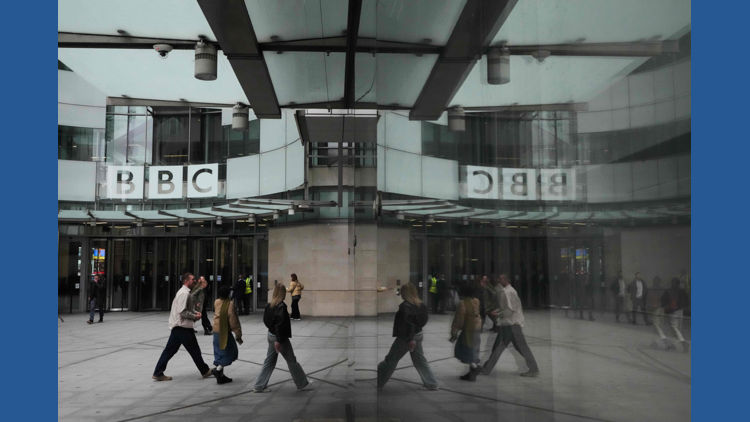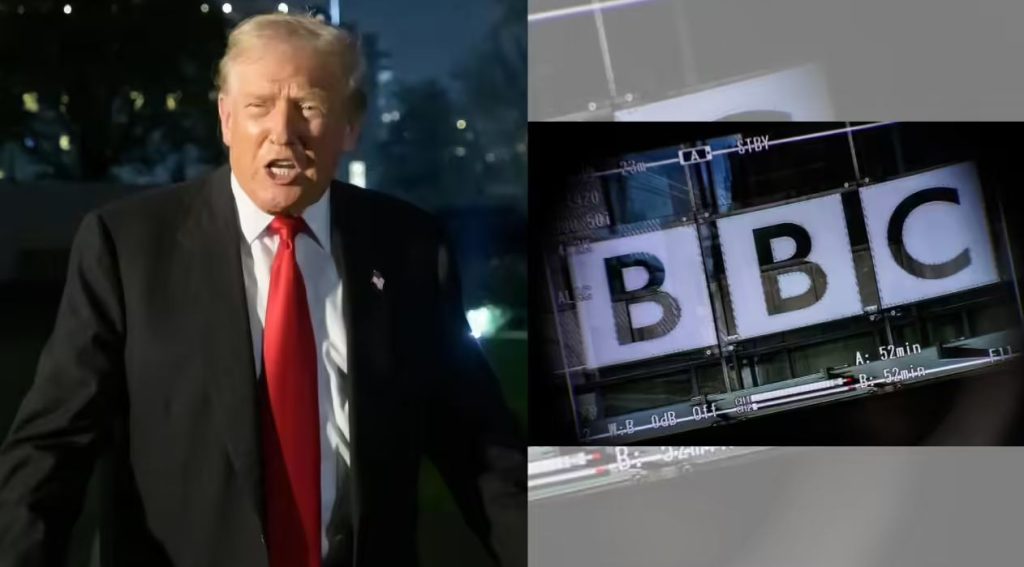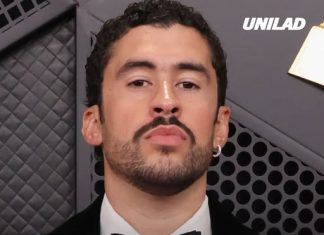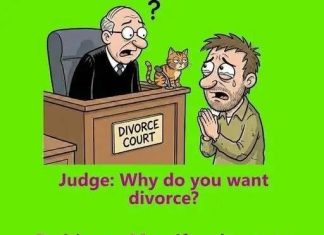Donald Trump has formally issued a challenge to BBC, underlining his position that the broadcaster manipulated footage of his speech from January 6 2021. He claims the editing falsely depicted him as inciting the crowd at the United States Capitol riot, and now demands serious redress.
What he’s demanding
Trump’s letter lays out three clear requirements:
- A prompt retraction of the documentary footage in question.
- Public apology and acknowledgement of wrongdoing.
- Compensation for damages stemming from the alleged deception.
- He gives the broadcaster until a specified deadline to respond — effectively making this an ultimatum.

The BBC’s response and internal fallout
The BBC has admitted that the way the speech was edited “gave the impression of a direct call for violent action”.
Two of its top executives — Tim Davie (Director General) and Deborah Turness (News Chief) — resigned amid the controversy.
The broadcaster says it will examine Trump’s demands and respond “in due course”.
Legal and jurisdictional considerations
Trump’s legal team signalled they may pursue the case under Florida defamation law — specifically because Trump’s residence is in the state and the relevant statute of limitations might favour him. However, legal analysts emphasise significant hurdles: In U.S. law, public figures face a high bar in defamation cases (they must show actual malice).
Furthermore, the BBC argues the edited content was part of a documentary and broadcast outside the U.S., which complicates whether U.S. courts can establish jurisdiction or enforce an award.
Why this matters
This episode underscores several larger themes:
- Media credibility and editorial oversight: For the BBC, the controversy threatens trust in its impartiality and professionalism. The admitted “error of judgement” raises questions about its standards and how it handles politically sensitive coverage.
- Global reach of media disputes: Trump’s targeting of a UK broadcaster marks an expansion of his long-running confrontations with media beyond U.S. borders.
- Political and reputational stakes: For Trump, the case is part of a broader effort to challenge narratives he views as harmful. For the BBC, the reputational risk is substantial: the matter has triggered leadership resignations and public scrutiny.
- Legal precedent and implications: If the case proceeds, it could test the boundaries of defamation law across borders, the enforceability of judgments internationally, and the protection of editorial decision-making in documentaries.
Outlook
At present, the demands and threat of a billion-dollar lawsuit remain just that — threats. The BBC has yet to commit to a settlement or publicised decision about how it will respond. Legal experts caution that while the financial figure is eye-catching, a successful case may still be difficult to mount given jurisdictional and legal obstacles. If Trump moves forward, the issue may open new ground in media law and also spur broader debates about journalism, accountability and international broadcasting standards.

Conclusion
Donald Trump’s confrontation with the BBC represents more than a simple defamation threat — it is a clash between political power and media accountability on an international scale. His $1 billion demand, coupled with accusations that the broadcaster intentionally distorted his words, highlights the ongoing tension between public figures and global news organisations in the digital age. While the BBC has admitted that its documentary’s editing created a misleading impression, the network’s apology and leadership resignations have not quelled the controversy. Trump’s insistence on legal redress reflects his long-standing battle with what he perceives as media bias and misinformation. However, experts suggest that any legal case would face steep obstacles due to jurisdictional complexities and the high legal threshold required to prove defamation against a public figure.

















